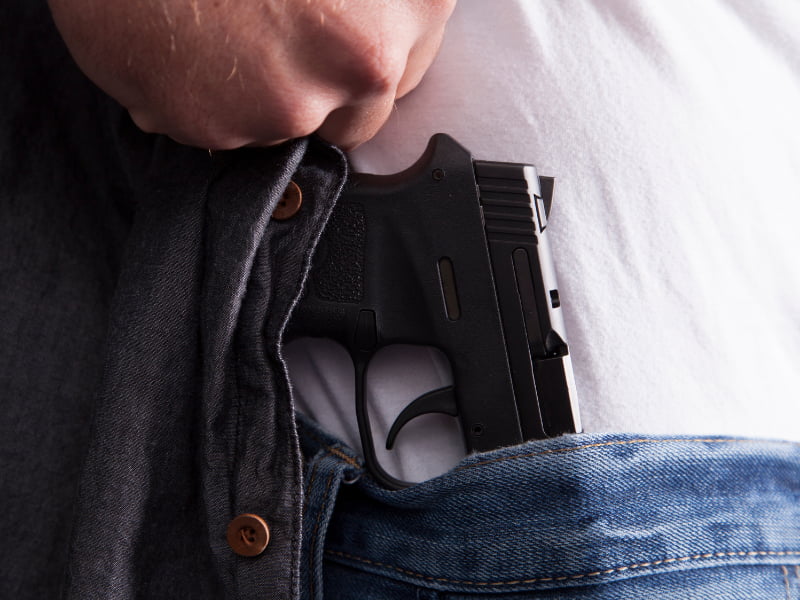
Open Carry vs. CPL Carrying in Michigan
In the state of Michigan, both open carry and carrying with a Concealed Pistol License (CPL) are legal, but there are distinctions between the two that anyone who carries a firearm should be aware of. Below is a comparison of the differences in rules and regulations between the two.
Definition and Legality

Open Carry: Open carry refers to the practice of openly carrying a firearm in public, where it is visible to others. In Michigan, open carry is generally legal for any person who is at least 18 years old and legally able to own a firearm. No permit is required for open carry, but there are restrictions on where it is allowed.
CPL Carrying: CPL carrying refers to the concealed carrying of a pistol. To carry a concealed firearm in Michigan, one must obtain a CPL. To qualify for a CPL, an individual must be at least 21 years old, complete a state-certified training course, pass an extensive background check, and meet other eligibility requirements.
Where You Can Carry
Open Carry: There are several places where open carry is prohibited in Michigan, including schools, day care centers, sports arenas, bars, churches, hospitals, and entertainment facilities that seat 2,500 people or more. Additionally, private businesses may post signage prohibiting open carry on their premises.
CPL Carrying: With a CPL, an individual can carry in many places where open carry is prohibited. However, concealed carry is still restricted in some areas, such as federal buildings, schools (unless specific permission is granted), and other designated gun-free zones.
Training Requirements
Open Carry: No training is required to openly carry a firearm in Michigan. It is strongly recommended however that those open carrying take firearm safety and training courses.
CPL Carrying: To obtain a CPL in Michigan, an applicant must complete an 8-hour training course that includes classroom instruction and live-fire exercises. The training covers Michigan law, firearm safety, and responsible ownership.
Interaction with Law Enforcement
- Open Carry: During interactions with law enforcement, an individual openly carrying a firearm is not legally required to inform the officer that they are carrying.
- CPL Carrying: A CPL holder must immediately disclose the fact that they have a concealed pistol on their person or in their vehicle when stopped by a police officer.
Reciprocity with Other States
- Open Carry: Michigan’s open carry laws do not extend to other states, and individuals must follow the open carry laws of the state they are in.
- CPL Carrying: Michigan has reciprocity agreements with many other states, allowing Michigan CPL holders to carry concealed in those states according to their laws. However this does not extend to all states, so it is advisable to verify reciprocity beforehand.
Further Legal Information
Open carry and CPL carrying in Michigan are both legal but come with different rights and responsibilities. Open carry offers fewer restrictions but also fewer privileges, such as where one can carry. CPL carrying requires more in terms of age, training, and disclosure but provides more freedom in terms of where one can carry a concealed weapon. This comparison of concealed vs open carry provides general information regarding the differences between the set of laws, however it is still advised to consult a legal professional specializing in criminal law as the regulations change over time with updates to the law.




